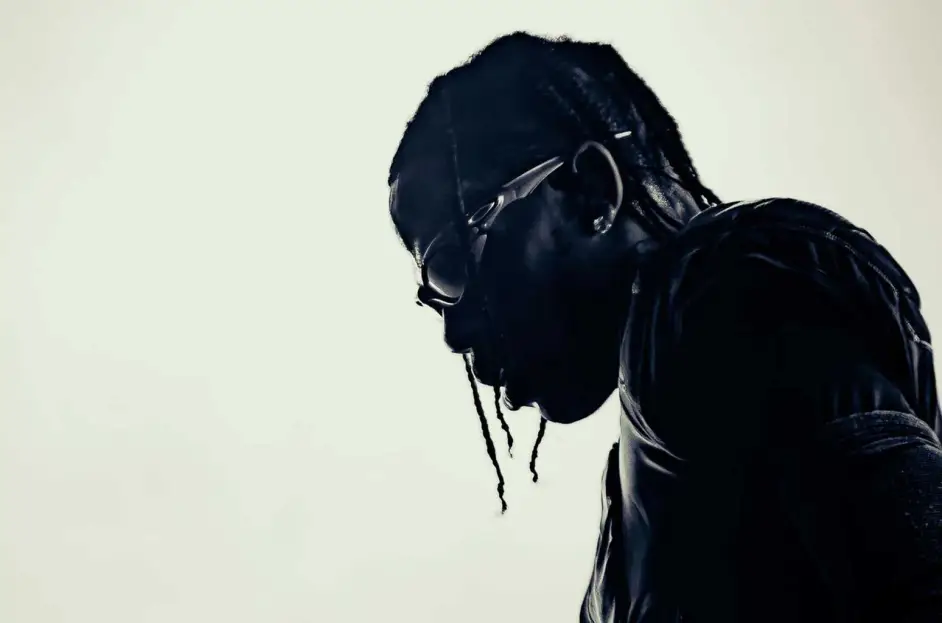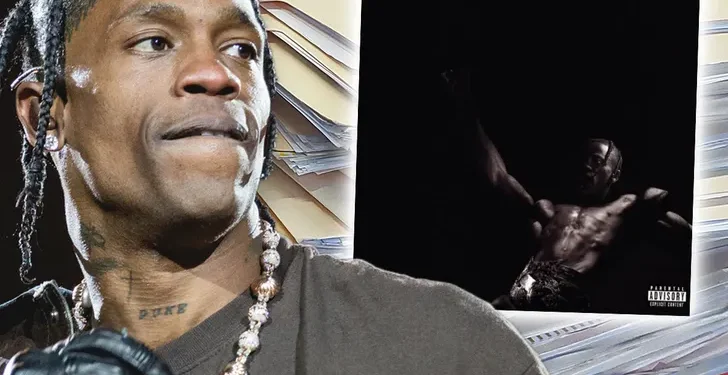“Utopia” distinguishes itself not only through Travis Scott’s characteristic blend of trap sounds and melodic lines but also through its star-studded collaborations. The album, which features strong performers such as Beyoncé, and The Weeknd, emanates a fascinating synergy that raises each tune to new heights. Travis’ raw intensity combined with the various styles of his featured guests produces an unrivaled audio voyage.

The drive to Utopia.
Scott had planned to play new songs from the album at the Pyramids of Giza, however, the concert was canceled on July 26 due to “complex production issues.” The performance is currently being rescheduled, but no date has been set as of yet. Travis Scott released a few tracks and performed at nightclubs prior to the release of Utopia, dubbed Road to Utopia. In addition, the singer will release Circus Maximus, featuring five different directors’ works.
Prior to the release of “Utopia,” Scott teased the album by releasing a few new songs and starting a nightclub residency called “Road to Utopia.” Earlier this week, a companion film to the record named “Circus Maximus,” including work from five different directors, was announced. Beyoncé appears on “Delresto (Echoes),” Drake appears on “Meltdown,” and others appear on the album as guests. Justin Vernon and Sampha of Bon Iver collaborate on “My Eyes,” SZA and Future appear on “Telekinesis,” while Kid Cudi appears on “Looove.”
The album was promoted by two songs
The album was promoted by two songs, “K-pop” and “Delresto (Echoes),” and it is a concept album accompanied by a film, Circus Maximus, which was released the day before the album. The album also has four alternative cover art, each with a different version, which Scott posted to his Instagram profile in the days leading up to its release. It is also his first project that was not released by Grand Hustle Records, as his contract with the label expired before its release.
“Utopia” revitalizes Travis Scott’s discography in the same way that his debut full-length “Rodeo” perfected the sound of his early mix tapes. Years in the making, the record broadens his sound without much altering it — he still uses his MPC, and his vocals are just as distorted as they were ten years ago — but the stakes have been raised significantly.
His image has been severely damaged by the deaths at last year’s Astroworld disaster. Back then, he was a rapidly rising Houston rapper. As his first release since then, “Utopia” had to represent a significant musical breakthrough, which he has.
With 19 full songs over almost 75 minutes, its features and/or contributors read like a dream Grammy-albums-of-the-year nominees list: Beyonce, Drake, the Weeknd, Bad Bunny, SZA, Kanye West, Future, Pharrell, 21 Savage, Daft Punk’s Guy-Manuel de Homem-Christo, Young Thug, Dave Chappelle, Playboi Carti, Bon Iver, Swae Lee, Kid Cudi, Mike Dean, Metro Boomin, James Blake, Noah Goldstein and a couple dozen more. But the real development here is in Scott’s artistry; he is the only producer listed on three of these tracks, and it demonstrates creative flexibility and intrepidness that’s uncommon for an artist of his caliber.
Scott, along with some of the above artists
Scott, along with some of the above artists, most notably Kid Cudi, the Weeknd, and Future, are part of the “808s & Heartbreak” generation, rappers crooning amid synthesizers, fusing electronic music with hip-hop. Having said that, it’s frequently reminiscent of his musical mentor and ex-de-facto-brother-in-law, Ye.
West’s best student touches on significant moments from his mentor’s discography while updating and expanding his own fifteen years after that album and ten years after Ye’s similarly culture-shattering “Yeezus” (which features Scott on three songs). The piercing screams on “God’s Country” are reminiscent of Ye’s shrieks on “I Am a God,” the thunderous drum line of “Circus Maximus” is reminiscent of “Black Skinhead,” and Cudi even appears at the end of “Looove,” as he does on the back part of “Guilt Trip.”
Whereas West sampled British prog-rock band King Crimson, Scott samples British prog-rock band Gentle Giant. Like “808s,” “Utopia” pushes melodic hip-hop into uncharted territory.
Whereas “Astroworld” feels like a series of amusement park rides and thrills, “Utopia” is hazier, this works to its benefit. Scott effectively challenges himself by joining the frontlines of East Side Buffalo, enjoying his love of boom-bap by attempting coke rap with Westside Gunn and the Alchemist on “Lost Forever.” On “My Eyes” and “Parasail,” he even enlists Frank Ocean associate Buddy Ross to guide him toward softer melodies, backed up with Swedish folk from Yung Lean and a spoken-word interlude from Chappelle.
Utopia” shines brightest
“Utopia” shines brightest when Travis fosters the collaborations he’s fostered throughout his career. Whether it’s Playboi Carti’s new Atlanta trap-inspired flow on “ Weeknd’s velvety croons on “Circus Maximus,” replacing the hefty basslines of “Rodeo’s” “Pray 4 Love” with prismatic synths, “Utopia” refreshes and reimagines his past.
Even the album’s closing track, “Til Further Notice,” continues the low-frequency trip-hop of “Mile High,” James Blake, Metro Boomin, and Scott’s most recent collaboration on Blake’s 2019 album “Assume Form.”
Vogue asked Scott what he’d been listening to and who he’d like to collaborate with in a 2021 interview. He mentioned Bjork and Houston instrumental alt-rock band Khruangbin, as well as Beyonce, Coldplay’s Chris Martin, British drum-n-bass veteran Goldie, and warped singer-songwriter King Krule. That melodic daring and versatility is on full display here. Where “Astroworld” provided spectacle, “Utopia” provides nuance and inventiveness.



